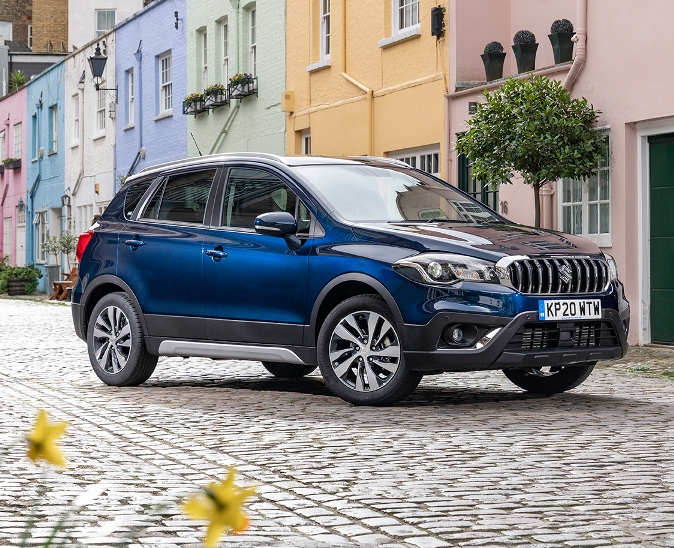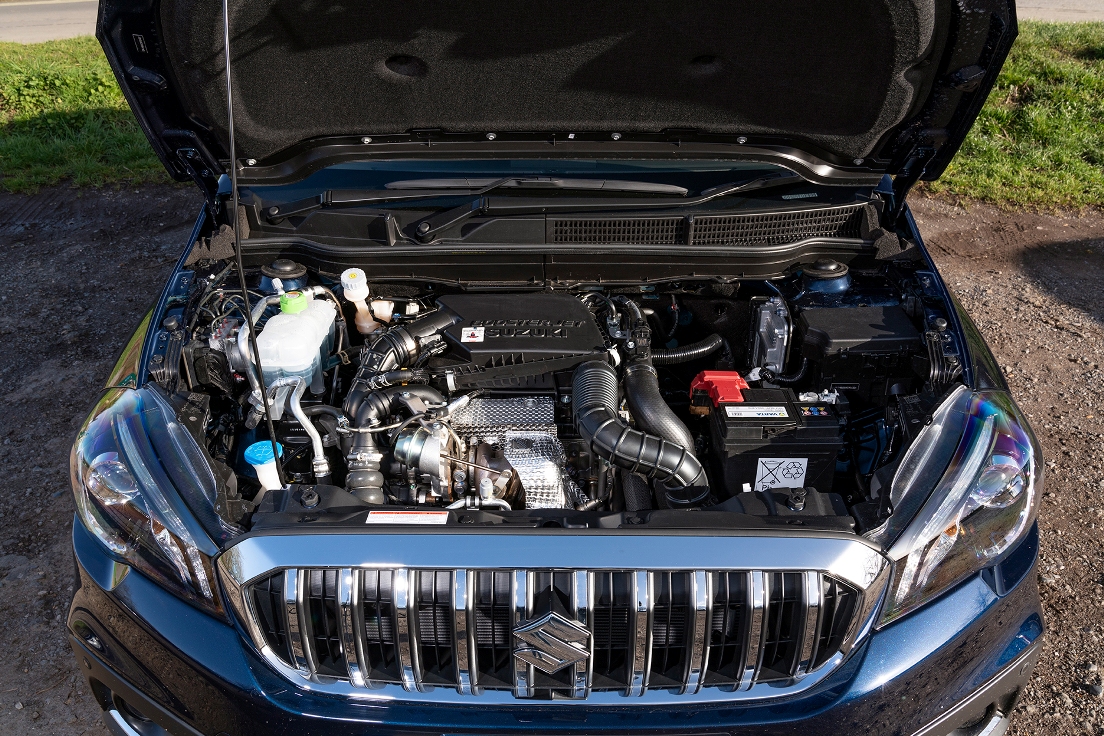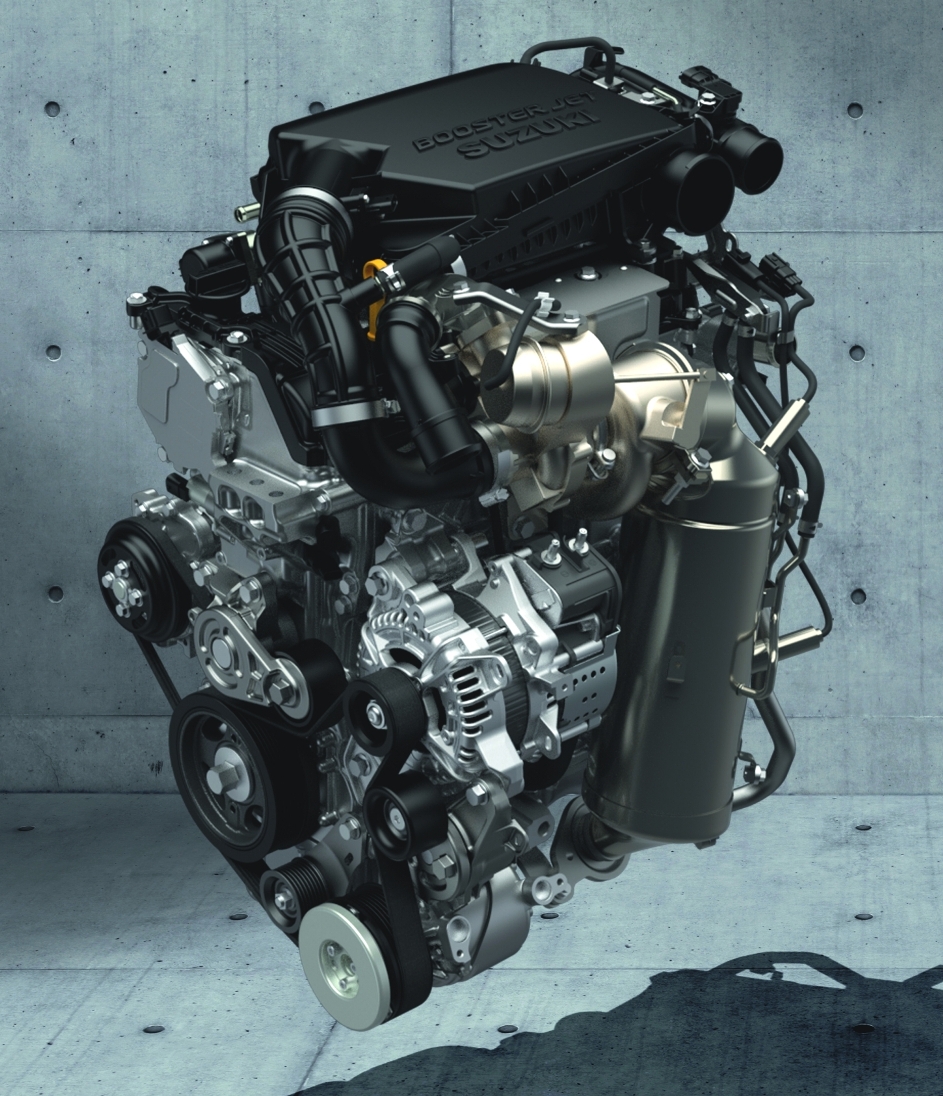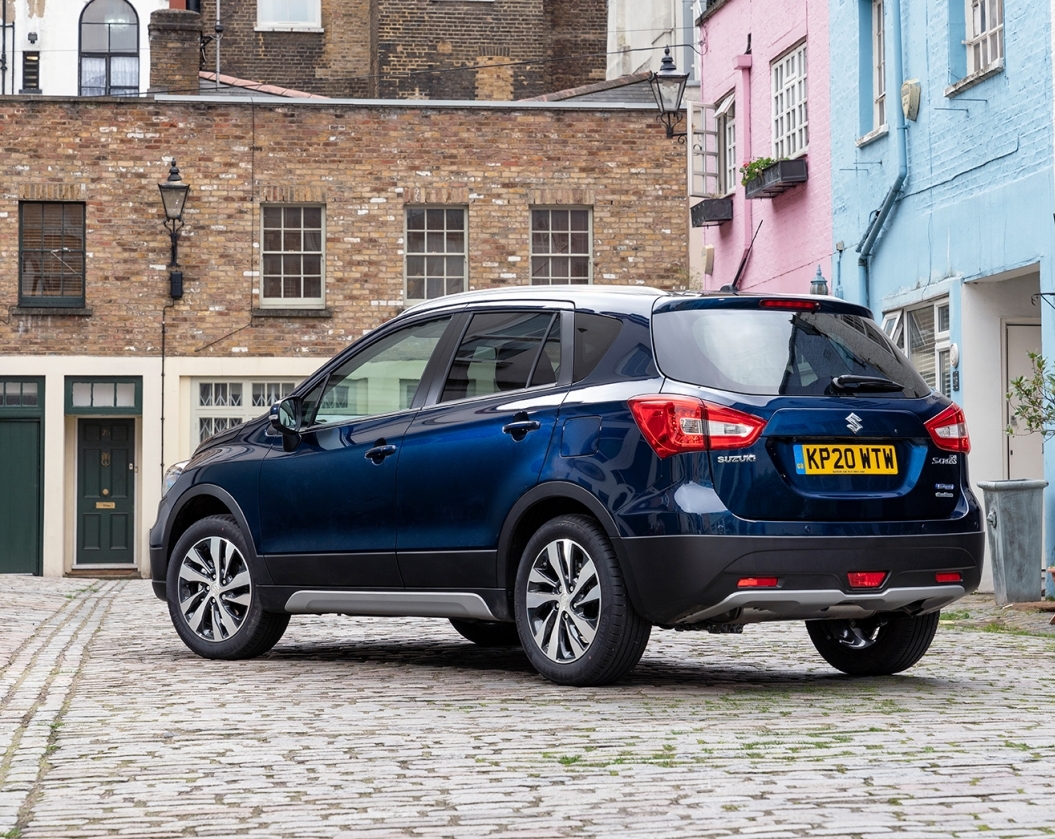 SUZUKI BACK ON TRACK WITH HYBRID 48-VOLT S-CROSS AND OTHER MODELS.
SUZUKI BACK ON TRACK WITH HYBRID 48-VOLT S-CROSS AND OTHER MODELS.
By David Miles (Miles Better News Agency).
Fire-up the S-Cross I’m back road testing new cars again now the UK’s pandemic lockdown rules have been relaxed to a certain extent.
The rule changes mean that car manufacturers, importers and dealerships are getting back on track and some of us motoring media types are partially able to sample new models. However availability of test cars will be spasmodic and limited due to corona virus sanitising measures and reduced availability of workshop space and delivery staff.
In March Suzuki UK were to hold a press launch for their new 48-Volt Hybrid S-Cross, Vitara and Swift Sport model ranges but the lockdown stopped all that and so the April on-sale date passed. But these 48-Volt Hybrid models are now in their dealerships and available for road testing by customers and some media.
The Suzuki S-Cross Hybrid Crossover is a mix of SUV styling with a five door mid-sized roomy hatchback. All but one version is 2WD but there is one ALLGRIP 4WD variant to make it more versatile for some UK rural and other potential global customers. The S-Cross is one of their world strategic models says Suzuki, and it is manufactured alongside the Vitara at the Magyar Suzuki plant in Hungary.
The S-Cross first went on sale with conventional engines in 2013 and bolder styled models were introduced three years later. Now we get the 48-Volt Self-Charging Hybrid equipped model, which like the updated Hybrid Vitara SUV and Swift Sport ‘hot-hatch’, all receive the new K14D Boosterjet petrol engine with Hybrid support.
The new Hybrid power train offers up to 20% lower CO2 emissions, more torque and a 15% overall improvement in WELT Combined fuel consumption. These models have replaced the previous 1.4 litre Boosterjet derivatives.
Similar in basic principle to the 12V Hybrid SUVS (Smart Hybrid Vehicle by Suzuki) system introduced in 2016, the newly developed 48V Hybrid Power train is lightweight and the components add less than 15 kg (33 lb) to the overall weight of the vehicle.
The new and higher-powered Suzuki SHVS system consists of a 48V lithium-ion battery, Integrated Starter Generator motor (known as ISG) and a 48V-12V (DC/DC) converter to power components requiring lower voltage including lights, audio and air conditioning. The ISG acts as both a generator and starter motor; it is belt driven and assists the petrol engine during acceleration from stand-still with a higher level torque of 235 Nm (173 lb.ft) available from 2,000 rpm up to 3,000 rpm to boost mid-range response as well.

The compact and lithium-ion battery stores electrical energy recovered from deceleration and braking and incorporates an idle stop function operated via the Integrated Starter Generator. The battery, along with the DC/DC convertor unit, is located under the front seats to assist overall weight distribution.
A further benefit of the new 48V Hybrid system is the introduction of electric motor idling when the clutch is disengaged and the engine speed is approximately 1,000 rpm. This feature essentially replaces fuel injection with power from the electric motor taking control and maintaining engine idling at vehicle speeds below 10 mph and when stationary.
This eliminates fuel consumption under these conditions as the engine’s momentum is electrically controlled by the ISG unit so the car is ready to re-accelerate with no engine restart delay. The 48V system also has Torque-fill control which improves low to mid-range engine response and torque boost to make acceleration seamlessly stronger. Simply put; by firmly pressing the accelerator the ECU brings the electric motor into play, assisting the engine, providing more torque and using less fuel with lower emissions.
‘And it does what it says on the label’ so-to-speak. The seamless availability of more torque, more low to mid range engine responses and an improvement in fuel consumption are the most noticeable features. It’s a gutsy and refined power unit and feels much bigger in capacity than its 1.4 litres size.
This revised Boosterjet 1.4 litre engine has been revised for the 2020 S-Cross range and is fitted to all three model grades. It is designated as K14D and incorporates a new electric Variable Valve Timing (VVT) system for the intake valves as well as new design fuel injectors and a higher pressure fuel pump. The exhaust camshaft side is controlled via a conventional Hydraulic VVT actuator. Power output is 129 hp with 235 Nm (173 lb.ft) of torque from 2,000 rpm. The engine is matched with a six speed manual gearbox with 2WD as standard, but ALLGRIP 4WD is available as an option for the top grade spec. The grades are SZ4, SZ-T and SZ5
As for performance the revised powertrain provides a 0–62 mph acceleration time of 9.5 seconds for 2WD models (10.2 seconds for the 4WD variant ), with a maximum speed of 118 mph for all versions.
SZ-T
My test drive model was the SZ-T, likely best selling version priced at £23,749. The range starts off at £20,749 for the SZ4 and goes up to £25,749 for the SZ-5 ALLGRIP model. The new WLTP Combined Cycle fuel economy for my test version is 50.1 mpg and on my week long overall driving it returned 44.7 mpg. The WLTP CO2 emissions are 127 g/km so new First Year VED alternative fuel rated road tax costs £165 and then £140 for Year Two onwards. The new company car Benefit-in-Kind tax is 28% and the insurance is Group 25D.
Although not substantially changed styling wise the equipment levels have been improved. Standard equipment for all models includes seven airbags, LED projector headlights for low and high beam, Radar Brake Support, Auto headlights and wipers, aluminium alloy wheels, DAB Radio with CD, USB and Bluetooth connectivity, Adaptive Cruise Control, dual-zone auto air conditioning and front and rear electric windows.
The SZ-T level adds 17-inch polished alloy wheels, rear privacy glass, keyless entry with start button, white stitching for seat trim fabric, Smartphone link audio and navigation system.
Moving up to SZ5 adds leather upholstery with heated front seats and panoramic sunroof. All versions are covered by the ungenerous Suzuki three years/60,000-mile warranty but we know the brand builds reliable, tough vehicles and the UK dealerships offer award winning customer service. Suzuki is normally sharp with their UK prices and at the time of writing is offering 0% APR finance and zero costs deposits.
I’m never that sure on how to classify the Suzuki S-Cross. Suzuki calls it a Crossover so as not to interfere with their Vitara SUV best selling model range. The S-Cross with its proportions, SUV exterior styling including body protection trim and higher ground clearance, give it SUV appeal rather than it being termed a hatchback or an estate. There are so many brands these days that have blurred the traditional styling lines that used to determine what a car was.
Essentially the S-Cross has five doors, five seats, it’s 4,300 mm (14.11 ft) long, 1,785 mm (5.86 ft) wide and 1,585 mm (5.20 ft) tall. It has a wheelbase of 2,600 mm (8.53 ft) with 430 litre (15.19 cu.ft) boot space which doubles to 875 litres (30.90 cu.ft) with the split rear seats folded down.
The interior layout is conventional and the driving controls numerous, its looks a ‘busy’ cockpit with lots of controls and some of the trim is hard and scratchy. Driving visibility is generally good although the wide front quarter pillars reduced visibility at times, mainly during in-town driving with pedestrians having forgotten during the lockdown that cars use the streets again. The sat-nav is a basic system and certainly not the most modern, with dated graphics – and it can be slow to initialise.
VERDICT
Ride comfort is generally good, the handling predictable and overall the vehicle is a solid all-rounder available at an attractively sensible price. The new higher powered 48-Volt Self Charging Hybrid system and the additional latest auto braking and other safety measures now introduced are all welcome and sensible changes.
For: New 48-Volt powertrain with innovative engine control functions at tickover and improved torque for low to mid-range speeds, smooth transition between pure engine and electric power modes, livelier all-round performance, improved fuel economy and lower emissions, added safety specification, roomy interior, well-equipped, compliant ride, attractive price.
Against: Interior controls and equipment look/feel dated, touchscreen smears with fingerprints, hard plastic trim in places, competent handling rather than inspiring to drive, ungenerous warranty.
Milestones and Wheels-Alive Tech. Spec. in Brief:
2020 Suzuki S-Cross Crossover, 1.4 Boosterjet SZ-T Hybrid, 2WD.
Price: £23,749.
Engine/transmission: Revised 1.4 litre, four cylinder Boosterjet direct injection petrol unit with variable inlet valve timing plus a 48-Volt integrated starter/generator motor, lithium-ion battery pack with regenerative and self charging power functions, six speed manual, 2WD,
129 hp, 235 Nm (173 lb.ft) of torque from 2,000 rpm.
Performance: 118 mph, 0–62 mph 9.5 seconds.
Fuel consumption: New WLTP Combined Cycle 50.1 mpg, (44.7 mpg on test).
Emissions and taxation: CO2 127 g/km, new VED First Year road tax £165 then £140 Standard rate, new BiK company car tax rate 28%.
Insurance Group: 25D.
Warranty: Three years/60,000 miles.
Dimensions/capacities: L 4,300 mm (14.11 ft), W 1,785 mm (5.86 ft), H 1,585 mm (5.20 ft), wheelbase 2,600 mm (8.53 ft), boot/load space 430–875 litres (15.19–30.90 cu.ft), five doors/five seats.